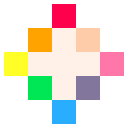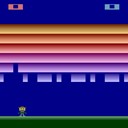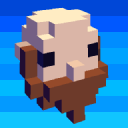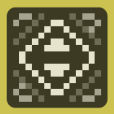Top TIC-80 Alternatives for Fantasy Console Game Development
TIC-80 is a beloved fantasy computer that empowers creators to make, play, and share tiny retro-styled games with built-in tools for coding, sprites, maps, and sound. While TIC-80 offers a fantastic experience with its specific technical limitations, many developers seek out TIC-80 alternative options for varied features, platforms, or creative workflows. Whether you're looking for different programming languages, more expansive toolsets, or a unique take on the fantasy console concept, there's a strong alternative out there for your next pixel-art masterpiece.
The Best TIC-80 Alternatives
If you're ready to explore beyond TIC-80, here's a curated list of top-tier fantasy consoles and game development environments that offer similar retro charm with their own distinct advantages. Dive in to find your perfect fit!

PICO-8
PICO-8 is a highly popular Lua-based fantasy console, often considered a direct competitor and excellent TIC-80 alternative. It’s a commercial software available on Mac, Windows, Linux, and Raspberry Pi, providing built-in image and music composers that make it incredibly robust for creating tiny, complete games from scratch.

8bitworkshop
8bitworkshop offers a unique, free, and web-based IDE for Atari 2600 development, making it a great TIC-80 alternative for those interested in a more specific, classic hardware focus. Built on Javatari and DASM with CodeMirror, it provides a powerful browser-based development environment.

Voxatron
Voxatron stands out as a commercial fantasy console that allows games to be made out of voxels, a distinct visual style compared to TIC-80's pixel art. It includes a dedicated Voxel-editor, offering a different creative avenue for developers looking for a unique aesthetic.

Bitsy
Bitsy is a free, web-based editor designed for creating small, narrative-focused games or worlds where you can walk around and talk to characters. As a simple and accessible TIC-80 alternative, it offers a built-in image editor and IDE, focusing on ease of use for quick creative expression.

quadplay
quadplay is a free and open-source fantasy console available on Mac, Windows, Linux, and Web, with self-hosting options. It provides an emulator and advanced development tools, including an adept IDE and integration with other IDEs like VS Code, Vim, and Emacs, making it a powerful TIC-80 alternative for those seeking an extensible environment.
Pixel Vision 8
Pixel Vision 8 is a commercial platform for Windows that standardizes 8-bit fantasy console limitations built on an open-source C# SDK. It allows developers to customize these restrictions, providing a flexible TIC-80 alternative for those who want control over their virtual hardware's capabilities.

Pyxel
Pyxel is a free and open-source retro game engine for Python, available on Mac, Windows, and Linux. Inspired by fantasy consoles like PICO-8, Pyxel imposes graphic and sound limits, making it an excellent TIC-80 alternative for Python developers looking to create retro-style 2D games within a constrained environment.

LIKO-12
LIKO-12 is a free and open-source fantasy console built with the LÖVE game engine, available on Windows. It offers a similar experience to other fantasy consoles, providing a solid open-source TIC-80 alternative for those who appreciate community-driven development and Lua-based game creation.

PX8
PX8 is a free and open-source fantasy console written in Rust, supporting Python and Lua, and available on Mac, Windows, and Linux. As a robust TIC-80 alternative, it caters to developers interested in exploring a modern, performant language like Rust for retro game development.

Zany80
ZANY80 is a free and open-source fantasy console built around the Zilog Z80 processor (used in the classic Spectrum Z80 computer), available on Windows, Linux, Web, and self-hosted. For those seeking a TIC-80 alternative with a very specific, vintage CPU focus, ZANY80 offers a unique and authentic retro development experience.
Choosing the best TIC-80 alternative depends on your specific development goals, preferred programming languages, and desired creative constraints. Explore these options, try out their features, and find the fantasy console that best fuels your retro game development journey!